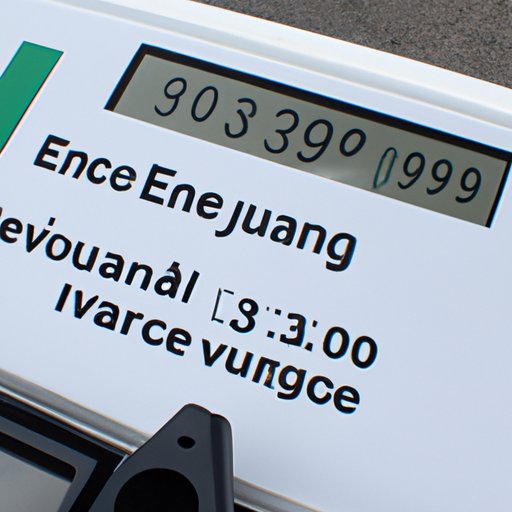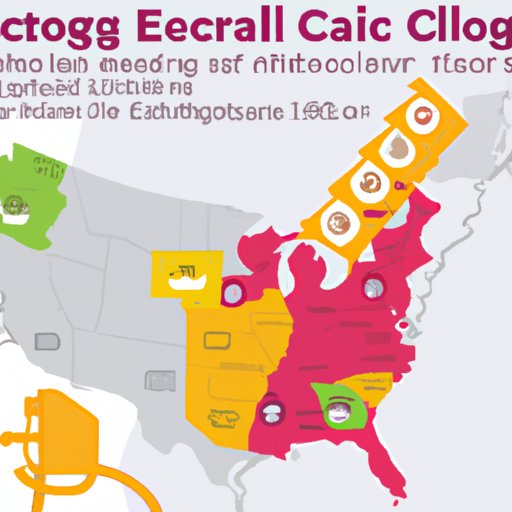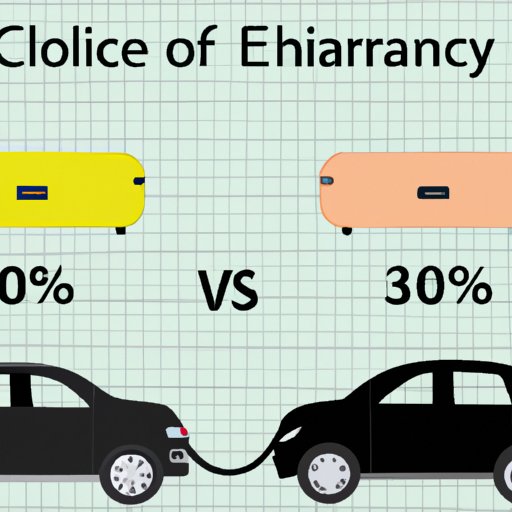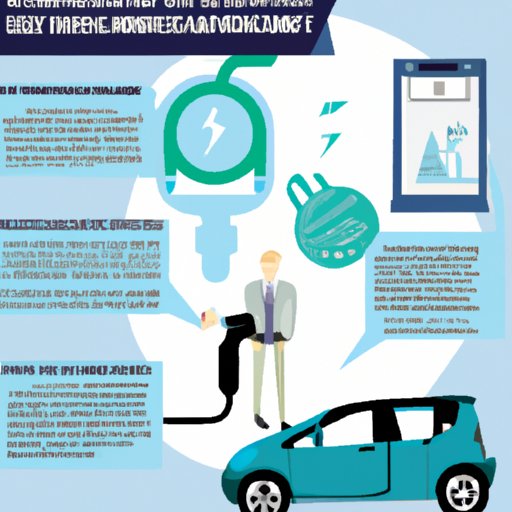Introduction
The cost of owning and operating a vehicle can add up quickly, and for those looking to switch to an electric car, one of the main concerns is the cost of charging. Fortunately, there are many ways to save money when you own an electric car. This article will provide a comprehensive guide to understanding the cost of charging electric cars, from analyzing the expenses associated with charging to exploring regional differences in cost.
Analyzing the Cost of Charging Electric Cars: A Comprehensive Guide
When considering the cost of charging electric cars, the first thing to consider is the type of charger being used. Generally, there are three types of chargers: Level 1, Level 2, and DC Fast Chargers. Level 1 chargers use a standard 120-volt outlet and typically take 10 to 12 hours to fully charge a vehicle. Level 2 chargers are more powerful, using a 240-volt outlet, and can charge a vehicle in 4 to 8 hours. Finally, DC Fast Chargers use 480 volts and can charge a vehicle in 20 minutes or less. The type of charger used will determine the cost of charging.
Breaking Down the Expenses of Charging an Electric Car
When it comes to the cost of charging electric cars, there are two main components: the cost of electricity and the cost of the equipment. According to a study by the Department of Energy, the cost of electricity accounts for around 80 percent of the cost of charging an electric car. The cost of electricity varies depending on the region and the type of electricity plan you have. For example, in some states, electric car owners may be eligible for special rates that make charging more affordable. The cost of the equipment, including the charger and installation, accounts for the other 20 percent of the total cost of charging.

How to Estimate the Cost of Recharging Your Electric Vehicle
Once you know the cost of electricity and the cost of the equipment, it’s easy to estimate the cost of recharging your electric vehicle. To do this, you’ll need to know the capacity of your battery in kilowatt-hours (kWh) and the cost of electricity in your area. Multiply the capacity of your battery by the cost of electricity to get an estimate of the cost of recharging your vehicle. For example, if you have a 60 kWh battery and the cost of electricity is $0.12 per kWh, recharging your vehicle would cost around $7.20.
The Pros and Cons of Charging Electric Cars: What You Need to Know
In addition to the cost of charging electric cars, there are also several advantages and disadvantages to consider. One of the major advantages of electric cars is that they are much more fuel efficient than gasoline cars. According to the Environmental Protection Agency, electric cars get approximately 3 miles per kWh compared to just 0.3 miles per gallon for gasoline cars. This means electric cars are significantly cheaper to operate over the long run.
However, there are also some drawbacks to consider. For one, electric cars have limited range compared to gasoline cars. This means that long road trips can be difficult, and you’ll need to plan ahead to ensure you have access to charging stations along the way. Additionally, electric cars can be more expensive to purchase upfront, although this cost is often offset by lower operating costs.

Exploring the Cost of Charging Electric Vehicles by Region
The cost of charging electric vehicles can vary greatly depending on the region. In the United States, the cost of electricity ranges from around $0.09 per kWh in Washington state to around $0.30 per kWh in Hawaii. In Europe, the cost of electricity can range from around $0.05 per kWh in Germany to around $0.30 per kWh in Denmark. In Asia, the cost of electricity can range from around $0.05 per kWh in India to around $0.30 per kWh in Japan.

Comparing the Cost of Charging Electric Vehicles vs. Gasoline Cars
Another important factor to consider when it comes to the cost of charging electric cars is how it compares to the cost of fueling a gasoline car. According to the U.S. Department of Energy, the average cost of fueling a gasoline car is around $2.50 per gallon. This means that, on average, it costs around $25 to fill up a 15-gallon tank, or $1.67 per gallon. By comparison, the cost of charging a 60 kWh battery at the national average of $0.12 per kWh is just $7.20.
In addition to the cost of fueling, there are also maintenance costs to consider. Electric cars require less maintenance than gasoline cars, as they don’t require oil changes or spark plug replacements. This means that over the long term, electric cars are often cheaper to maintain than gasoline cars.
Conclusion
The cost of charging electric cars can vary depending on the region and the type of charger used. On average, electric cars are much cheaper to operate than gasoline cars, as they get more miles per kWh and require less maintenance. However, electric cars have limited range and may be more expensive to purchase upfront. By understanding the cost of charging electric cars, you can make an informed decision about whether or not an electric car is right for you.
(Note: Is this article not meeting your expectations? Do you have knowledge or insights to share? Unlock new opportunities and expand your reach by joining our authors team. Click Registration to join us and share your expertise with our readers.)
